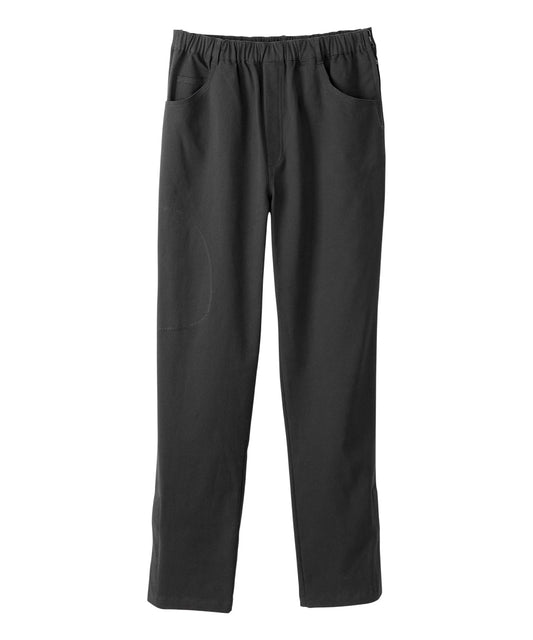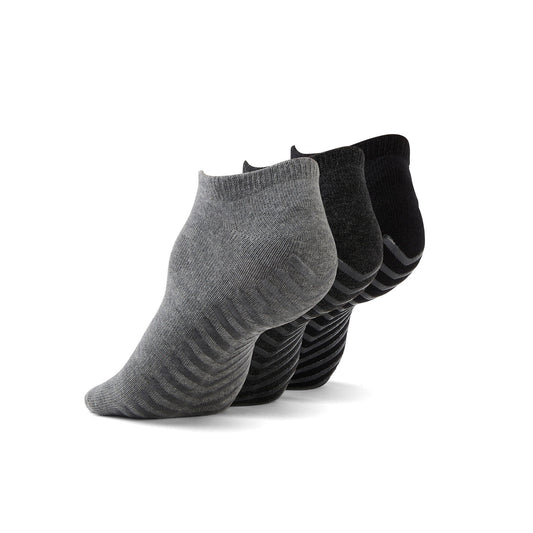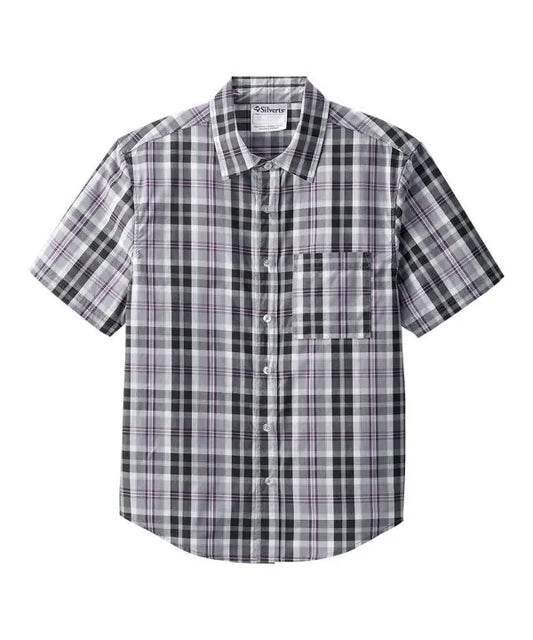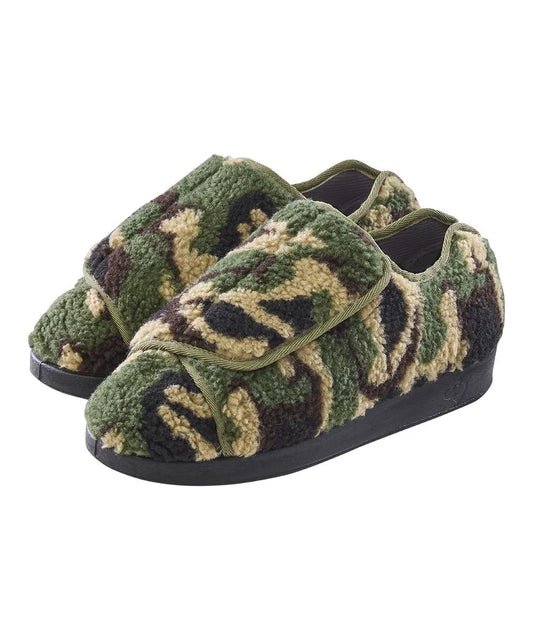Author: Harshil Shah
Gift-giving is tough. Especially when it’s for someone who’s just had surgery, started using mobility aids, or is figuring out life with a new diagnosis. You want to get something useful—something that actually helps—but still feels thoughtful and personal.
We’ve seen it all. Bath salts. Hospital socks. Mugs that say “You Got This” while they’re struggling with zippers and buttons that do not got this.
So, what do people actually use? What are the gifts that don’t just sit in a drawer?
Here’s your guide to real gifts that people love, use daily, and tell their friends about.
No Tie Shoes: For People Who Hate Mornings (and Laces)
If there’s one thing that gets used immediately, it’s shoes you don’t have to tie. Whether it’s for someone recovering from an ankle injury or someone with chronic pain, bending down and fiddling with laces isn’t fun.
Think slip-ons, stretch uppers, and easy zippers. These aren’t just easier—they’re lifesavers.
One standout pick: our Men's Lightweight Cushioned Shoes with Rear Zipper Access. A teen from Toronto said, “I wore Crocs for weeks. Then someone gave me these. Huge upgrade—I even wear them to physio.”

Once people try shoes that do the hard part for them, they rarely go back. And when something helps someone feel confident walking again, it’s more than a gift. It’s a restart.
Adaptive Wedding Clothes: Because “I Do” Shouldn’t Mean “I Can’t Pee”
Getting dressed for formal events is stressful for anyone, but even more so if you’re dealing with limited mobility, post-op swelling, or bathroom logistics.
Traditional suits and dresses often forget comfort entirely. So we designed formalwear that looks great but feels easy. Side pockets and flexible fabric help people enjoy the whole day, not just the photos.
Take our Women's Knit Maxi Dress. It’s been a go-to for weddings and other big events. A customer in Montreal told us, “I wore it to my cousin’s wedding and didn’t have to ask for help once. Total game changer.”

Another customer who’d recently had shoulder surgery told us, “Getting into a dress used to mean tears. Now I feel excited to get dressed up.”
The difference is in the little things, like using the washroom without panic or pain.
Who Knew Grip Socks Could Be a Thoughtful Gift?
People usually think socks are a boring gift. But when they help prevent falls, keep you warm, and don’t slide around hardwood floors, they suddenly become everyone’s favourite.
Our Anti-Slip Bamboo Grip Socks have helped stroke survivors, post-surgery patients, and people with balance issues feel safer moving around at home. And they’re actually comfortable.
One customer said, “I was nervous walking around on my own. These gave me confidence again.”
Another said, “They feel like a hug for my feet. I didn’t realize how much I was compensating until I didn’t have to anymore.”
Pair them with a cozy hoodie or soft blanket for the ultimate feel-better bundle.
The Loungewear That Never Gets Returned
A lot of “comfort” gifts end up feeling cheap or impractical. But adaptive loungewear? That’s the stuff people live in, especially during recovery.
We’re talking about soft fabrics, magnetic fasteners, and clothes that don’t need to be pulled over your head or stepped into awkwardly.
One example: our Magnetic Fleece Pullover. It looks like a regular sweatshirt but opens at the shoulder for easy dressing. A man in Minnesota told us, “I didn’t expect to cry trying it on, but I did. It was the first thing I could wear on my own after my accident.”
Another woman recovering from a mastectomy said, “I lived in this thing. My family asked if I ever took it off.”
This is the kind of gift that turns frustration into relief. And people remember that.
Adaptive Accessories: Small Things That Make a Big Difference
Accessories are often overlooked—but they shouldn’t be.
Things like button hooks and zipper pulls seem simple, but can completely change someone’s morning routine. A customer in Ottawa told us, “This $10 tool gave me my independence back.”
Magnetic belts are another favourite. One wheelchair user said, “I hadn’t worn jeans in two years because I couldn’t do the buckle. Now I can.”
Sensory-friendly camisoles and underlayers are perfect gifts for teens with sensitivities or people recovering from skin surgery. Tagless, soft, breathable. It’s what “comfortable” actually means.
If you’re unsure what to get, a bundle of well-chosen accessories can make an incredible impact.
Scented Candles Don’t Fix Zipper Problems
We get it. It’s tempting to buy something cute and comforting, like a candle or cozy blanket. But if your loved one is struggling just to zip up their coat, they might need something a little more useful.
That’s where something like our Magnetic Zip Hoodie comes in. It’s warm, easy to put on, and designed to avoid pain and stress. One woman with chronic pain in Vancouver said, “I stopped going out because jackets were too hard. This helped me feel normal again.”

Candles might smell nice. But adaptive clothes? They make someone feel seen, supported, and strong.
Gifting for Different Moments in Life
Great gifts match where someone is in their journey. That’s what makes them personal.
For a new graduate: A polished, adaptive dress shirt or blouse for interviews can go a long way. One grad said, “Not stressing over buttons, let me focus on everything else I was nervous about.” Here is a perfect example of one with our Down Shirt With Back Overlap:
For new parents: Recovery-friendly joggers or magnetic nursing wear make the hospital-to-home phase way smoother. A mom told us, “No one talks about that stage, but it’s real. These pants helped.”
For birthdays after a diagnosis, these can be hard emotionally. Gifting adaptive wear shows you’re not ignoring what they’re going through, but you’re also not pitying them. A soft hoodie or easy-to-wear jacket can feel like a hug and a boost at the same time.
For caregivers: Yes, they deserve love too. Helping someone dress is hard work, and easy-on clothes can make things better for both people. One customer told us she started buying adaptive tops for herself after getting them for her dad. “We both get ready faster now.”
When You’re Not Sure What They Need
Gifting adaptive wear can feel intimidating if you’re not familiar with their exact needs. But that’s okay. You don’t need a diagnosis or a doctor’s note to make a good decision.
Start by asking:
-
Are they recovering from something?
-
Have they mentioned struggling with daily tasks?
-
Are they always wearing the same outfit?
If so, chances are they’ll welcome anything that makes life simpler.
Our Fit Support Line can also walk you through it at 647-797-7616 or by filling out the form here. We’ve helped siblings, neighbours, coworkers—even first-time gift-givers who said “I just want them to know I care.”
And honestly, that is often the most meaningful part. The clothes are just the delivery system.
What Makes a Great Adaptive Gift?
A few simple tips to keep in mind:
-
Choose function over flash.
-
Make sure sizing is adjustable or easy to exchange.
-
Think about what they do every day, and what slows them down.
-
Go for clothing that looks good but doesn’t scream “adaptive.”
Some reliable bundles:
-
Post surgery: magnetic hoodie, grip socks, bed organizer
-
Chronic pain: magnetic zip fleece, sensory-friendly tank, soft headband
-
Winter ready: Sherpa jacket, adaptive gloves, bamboo base layer
What Not to Get
Even with the best intentions, some gifts miss the mark. Watch out for:
-
One-size-fits-all clothes. They rarely fit well.
-
Overly medical-looking items. They can feel discouraging.
-
Overcomplicated products. If it takes 10 minutes to figure out, it won’t get used.
-
Gift sets full of filler. Fluffy slippers and generic lotion won’t help someone dress faster or feel more independent.
When in doubt, keep it simple. Focus on comfort, confidence, and ease.
The Emotional Impact of the Right Gift
We often hear stories from customers that go beyond clothing. One mom told us her son hadn’t worn a jacket since his surgery—until she gave him one of our magnetic coats. “He put it on and smiled. I hadn’t seen him smile like that in weeks.”
Another customer recovering from a stroke said, “I thought I’d never wear a button-down shirt again. Now I’m back to looking like myself.”
These moments stick. Not because the item was expensive or flashy, but because it gave someone a piece of themselves back.
When you give a great adaptive gift, you’re not just solving a problem. You’re restoring dignity. And that’s something people remember for years.
Why the First Gift Matters
When someone is new to adaptive wear, their first experience shapes how they see the whole category. A great gift can turn stress into confidence. It can show them that they’re not alone, and that better days are possible.
We’ve heard from customers who said, “This was the first thing that gave me hope again.” That’s the power of thoughtful design.
These clothes aren’t just clothes. They’re freedom. They’re relief. They’re real support that shows up every single day.
Ready to Give a Gift That Matters?
Browse our best-selling adaptive essentials here and give someone a gift they’ll use, love, and thank you for, again and again.















